Whilst scooping poop may not be the most glamorous aspect of owning a dog, it is one of the most essential. Dogs take a poop several times a day and as their owner, it is your responsibility to collect it and dispose of it appropriately. It is estimated that the 83 million pet dogs living in the US produce 10,600,000 tons of poop each year. Some owners are fastidious about picking up their dog’s poop from the sidewalk or parks but are not so conscientious when it comes to their yard. Surveys have shown that around 40 percent of dog owners don’t pick up their pet’s poop. They use excuses ranging from it being too much work to it not bothering anyone else. It’s time to think again! Here we list 12 important reasons for not leaving your dog’s poop in your yard.
1. Dog Poop Does Not Break Down
One of the main arguments for not collecting dog poop is that it is a natural product and will therefore break down by itself. Whilst this is true to some extent, dog waste can take up to a year to fully break down. During that time, it presents all of the hazards detailed here and doesn’t look too great either. Just because some other animal poop, such as horse manure, can be used as compost in your garden it does not mean that dog poop will have the same effect. Dog poop is acidic and destroys grass rather than enhances it. It is also very messy (and smelly) if it gets caught up in a lawn mower!
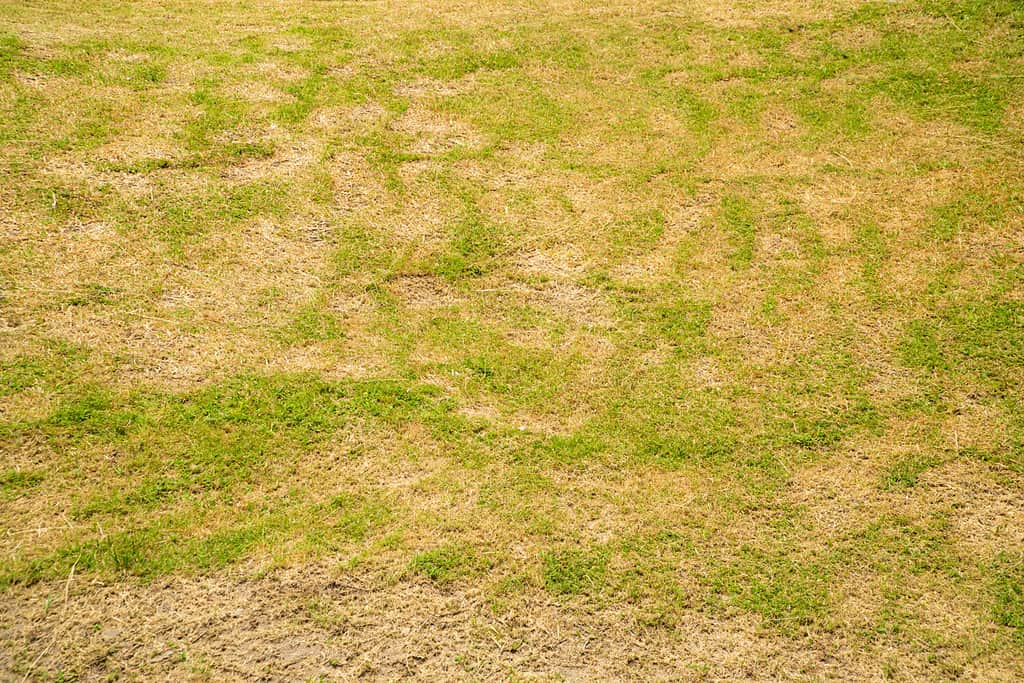
Dog feces are acidic and can kill grass.
©SingjaiStocker/Shutterstock.com
2. It Pollutes the Environment
Your yard or garden does not exist in isolation. It is connected to all of the environment and delicate habitats surrounding your home. When it rains, anything in your yard gets washed away and enters the surrounding environment including watercourses such as streams and rivers. The phenomenon is called leaching. This causes a problem because dog poop is full of nitrogen and phosphorus. Both of these can trigger excessive plant and weed growth which robs the water of oxygen and kills aquatic life. It can also make recreational water unsuitable for humans to use.
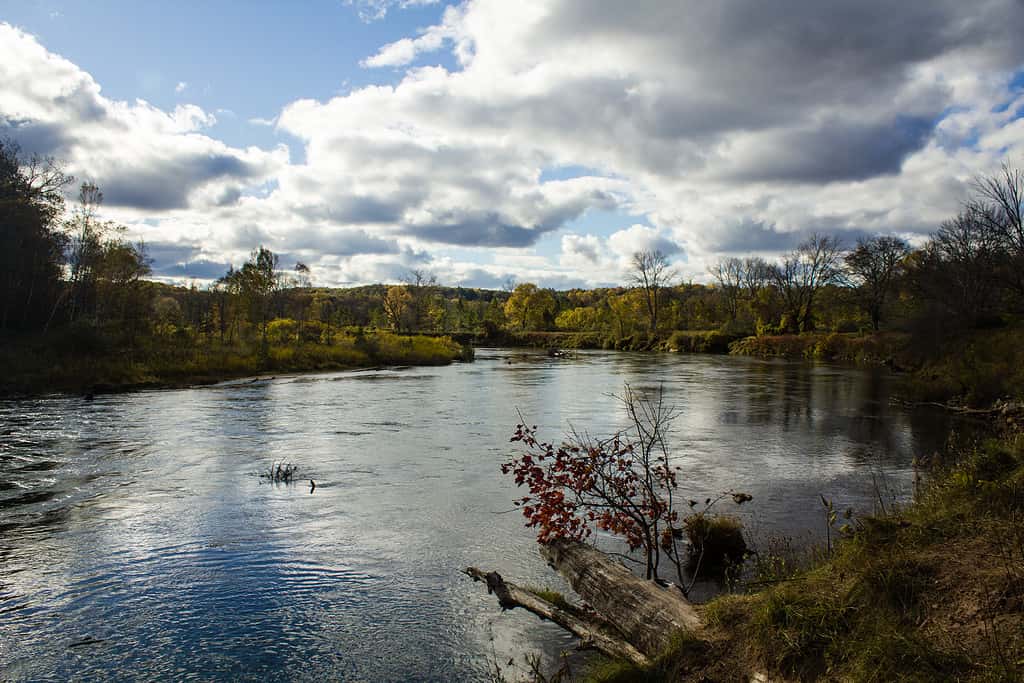
Dog poop can contribute nitrogen and phosphorus to watercourse levels.
©Andrew Gibbs/iStock via Getty Images
3. Someone May Tread in It
You might be careful about where you tread in your yard, and you may know where your pooch likes to go potty most often. That does not necessarily apply to your visitors especially if they are children or other dogs. No one wants to see dog poop being dragged into their home on the bottoms of shoes or, even worse, on bare feet! If you have ever tried to remove dog poop from the soles of trainers or a hallway carpet then you will understand this.
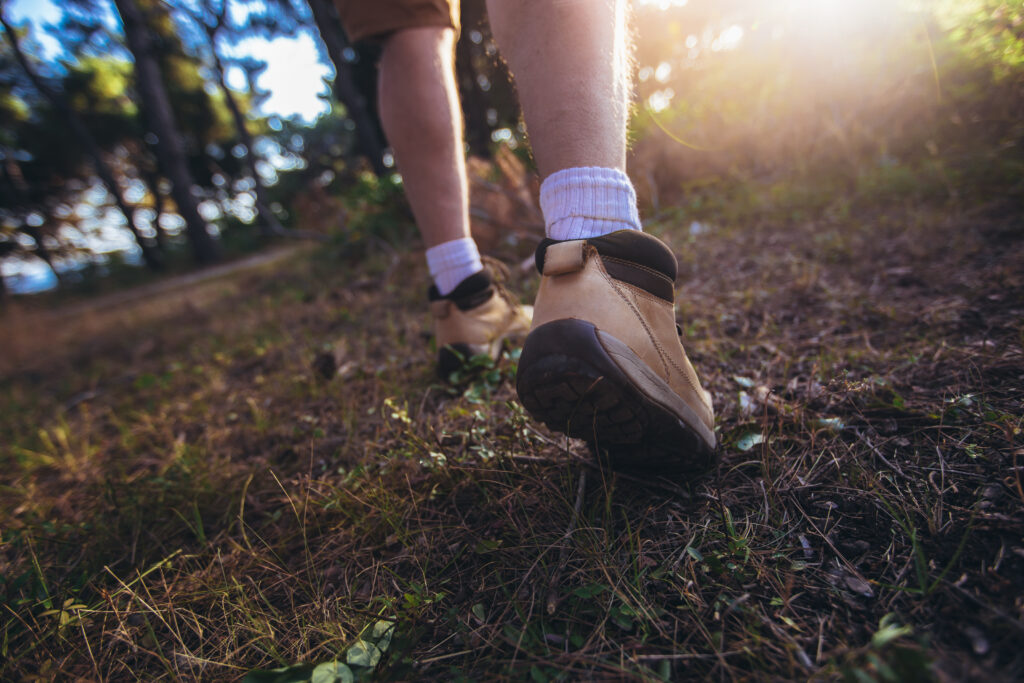
Treading in dog poop is no fun!
©adriaticfoto/Shutterstock.com
4. Dog Poop Contains Harmful Bacteria and Viruses
The bacteria and viruses that can be present in dog poop are an immediate threat to anybody using your yard and to the wider population if it is washed into water courses. There is a long list of pathogens that can be found in dog poop. It includes salmonella, E. coli, Giardia and Leptospira. These are zoonotic infections which means that they can be passed from animals to humans. Recent studies have found that some of these organisms are antibiotic-resistant including a methicillin-resistant Staphylococcus aureus. It has been suggested that dog poop may have the potential to contribute to the spread of resistance genes in bacteria. Discarded poop presents a risk to any other dogs that come into your yard, as well as wildlife and birds. The pathogens can be leached into water in the same way as nitrogen and phosphorus and present a risk to human health.
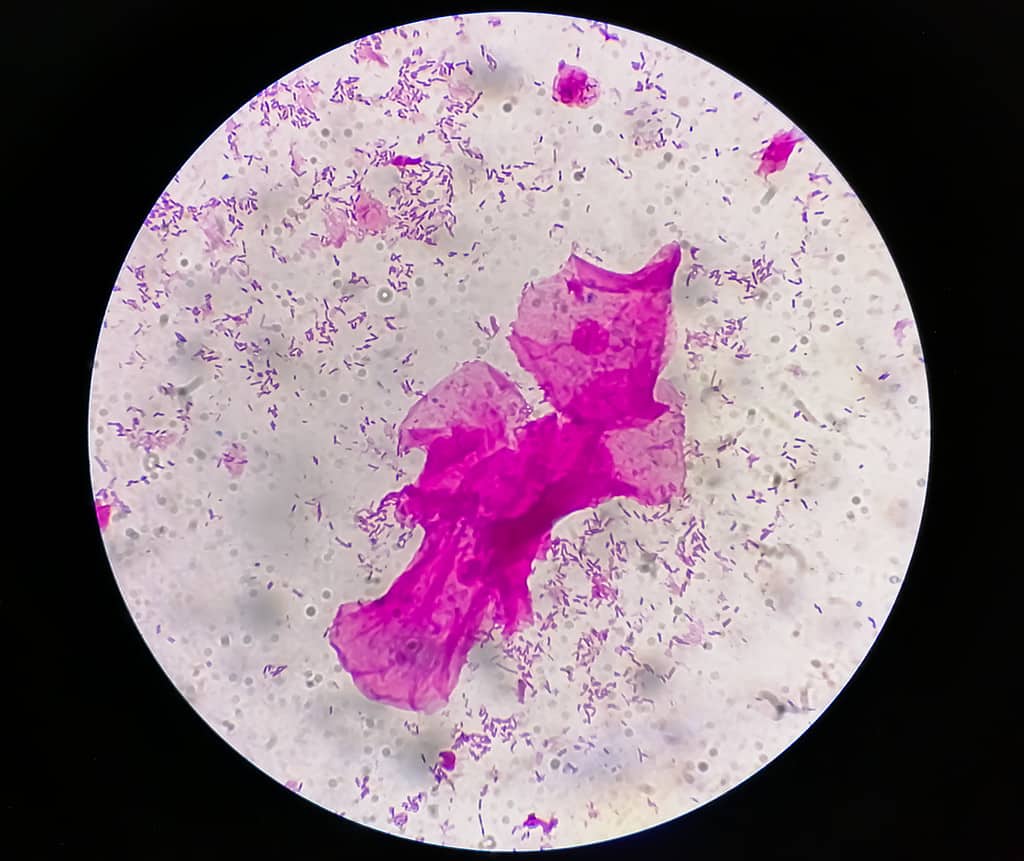
Some bacteria and viruses in dog waste can cause human diseases.
©iStock.com/Md Saiful Islam Khan
5. Dog Feces Smells Bad
Dog poop has a distinctive and unpleasant odor. This is caused by sulfur produced by bacteria in the dog’s intestine. Dogs on a low protein diet in particular can have very smelly poop. This is because the food is harder for their digestive system to break down and more sulfur is produced as part of the process. In some ways, it’s a good thing that dog poop smells because it helps us to know where it is! However, it can make your yard or garden an unpleasant place to be and your neighbors may also complain.
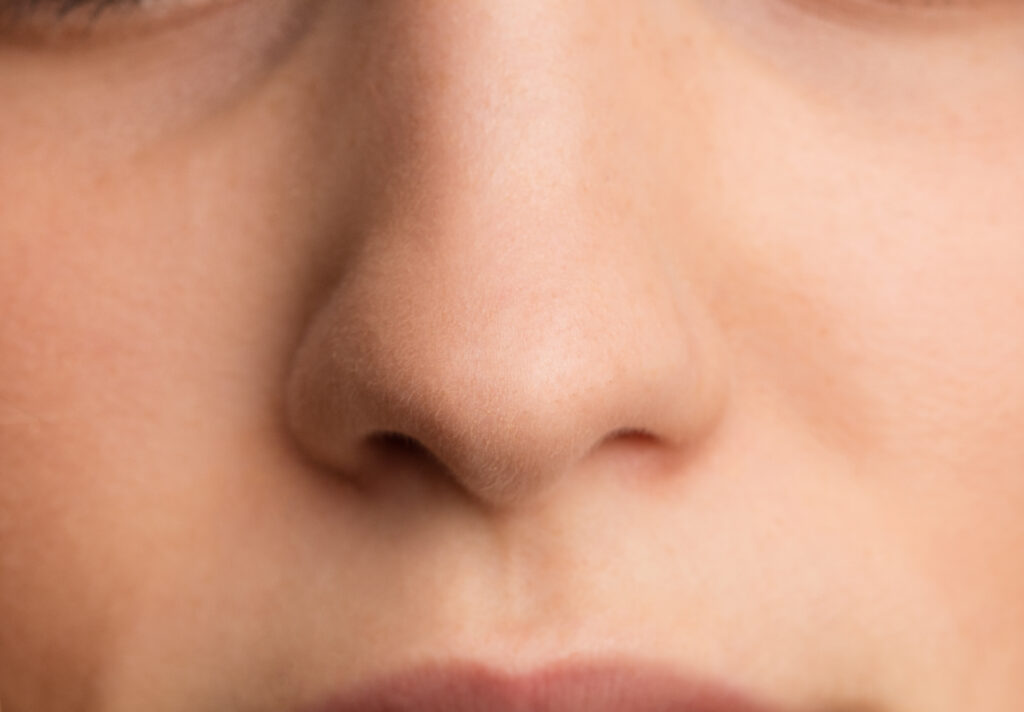
The sulfur in dog waste makes it smell so bad.
©Asier Romero/Shutterstock.com
6. Not Picking Up Poop May Be Illegal
Many areas have bylaws that require you to clean up after your dog in public areas. Some neighborhood homeowner associations and neighborhood covenants also require you to pick up poop in your yard. In rented accommodation, this may be in your tenancy agreement. If you live in apartments with a shared garden, it is courteous to your fellow residents to clean up after your dog. No one wants to use a garden covered in dog poop.
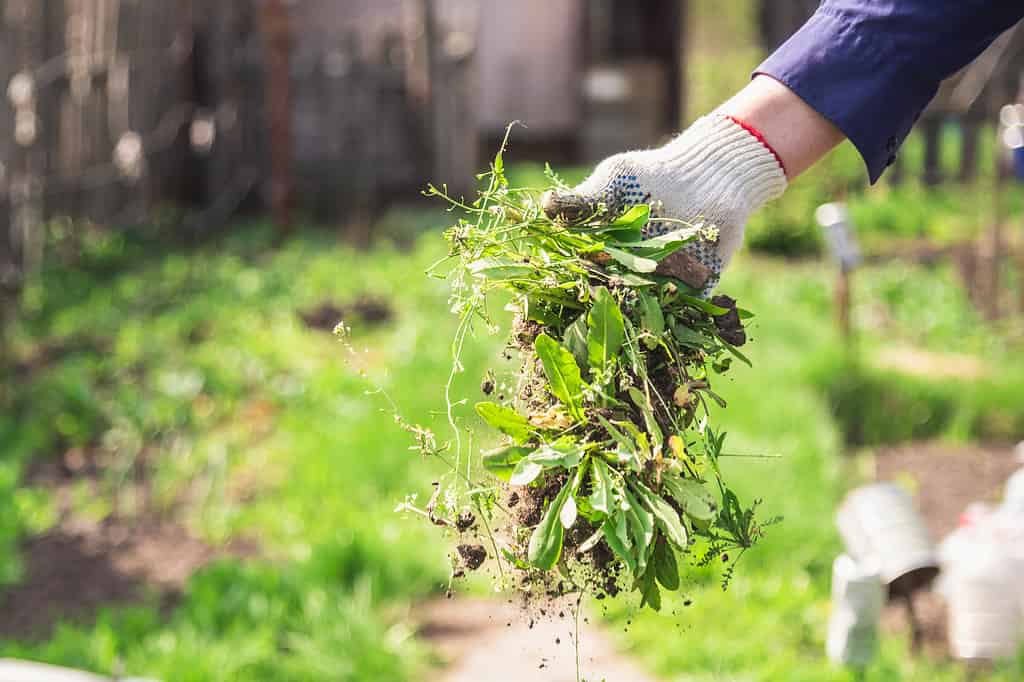
Some neighborhood covenants also require you to pick up poop in your yard.
©JohnAlexandr/iStock via Getty Images
7. It Can Encourage Vermin
Vermin, such as rats, in urban areas are not fussy about what they eat. Dog poop is high in fat, protein, and carbohydrates and that makes it an attractive food source for rats. They have an excellent sense of smell and will be able to locate the poop from some distance away. By leaving the poop in your yard, you are attracting rats to your home. Not only do these vermin carry disease, but they can also cause structural issues on your property by gnawing doors, windows, and even electric cables. The most effective way to determine firming is to remove all available food sources.
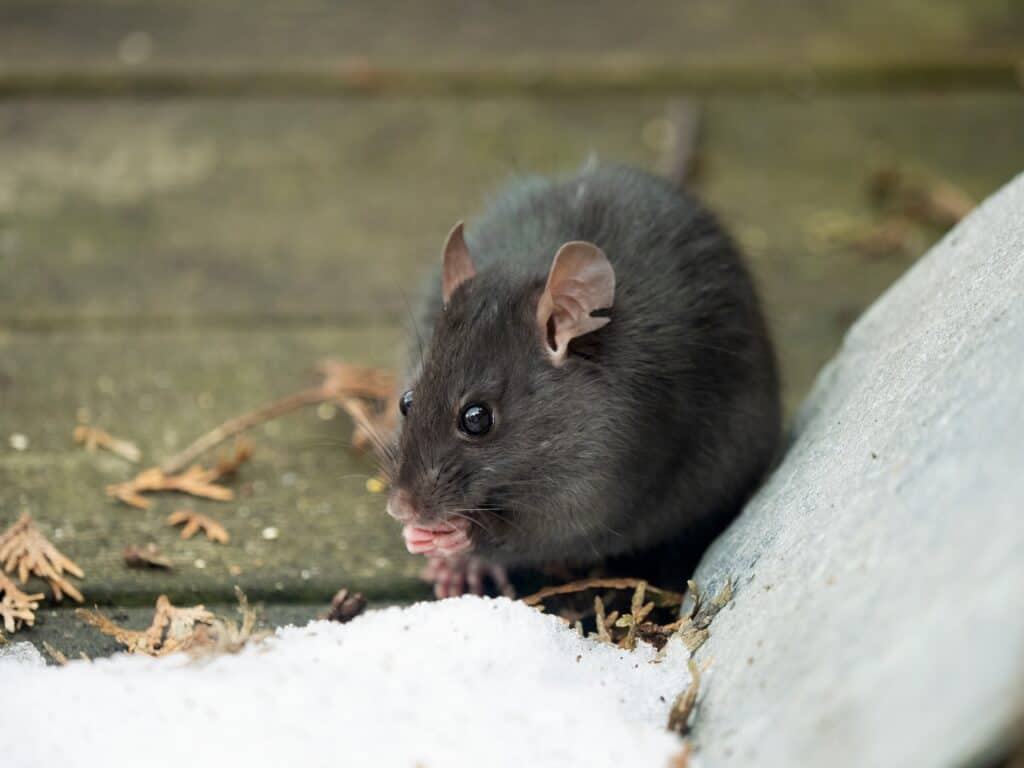
Rats are attracted to dog poop and they carry diseases.
©Ernie Cooper/Shutterstock.com
8. Your Dog May Eat It
Rats are not the only animals that like to eat dog poop – dogs like to do it as well! As disgusting as this may sound to us, it is a recognized canine behavior called coprophagia. Around one and six dogs are regular poop eaters and a quarter of dogs have tried it at least once. Both adults and puppies show this behavior but it is more common in multi-dog households and females. It is not a behavior that you should tolerate because it can lead to your dog eating feces produced by other dogs. This puts them at risk of contracting diseases. One of the main prevention strategies for coprophagia is removing poop as soon as they have deposited it. A lot of poop hanging around only encourages them!
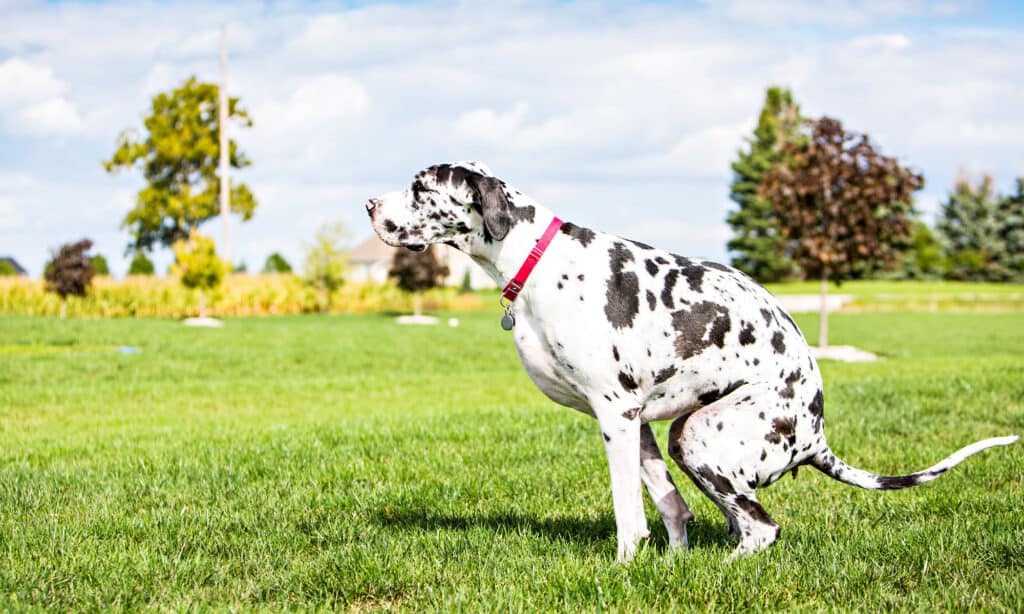
Many dogs will happily eat their poop.
©Victoria Rak/Shutterstock.com
9. Dog Poop Encourages Flies and Mosquitoes
Dog poop is an attractive food source for many flying insects including many species of flies and mosquitoes. These are not necessarily something that you want to encourage into your yard as they can also make their way into your home through open windows etc. Flies will lay their eggs in dog poop. These develop into larvae and eventually into a fresh generation of flies – right next to your house. The last thing you want is them landing on food in your kitchen!
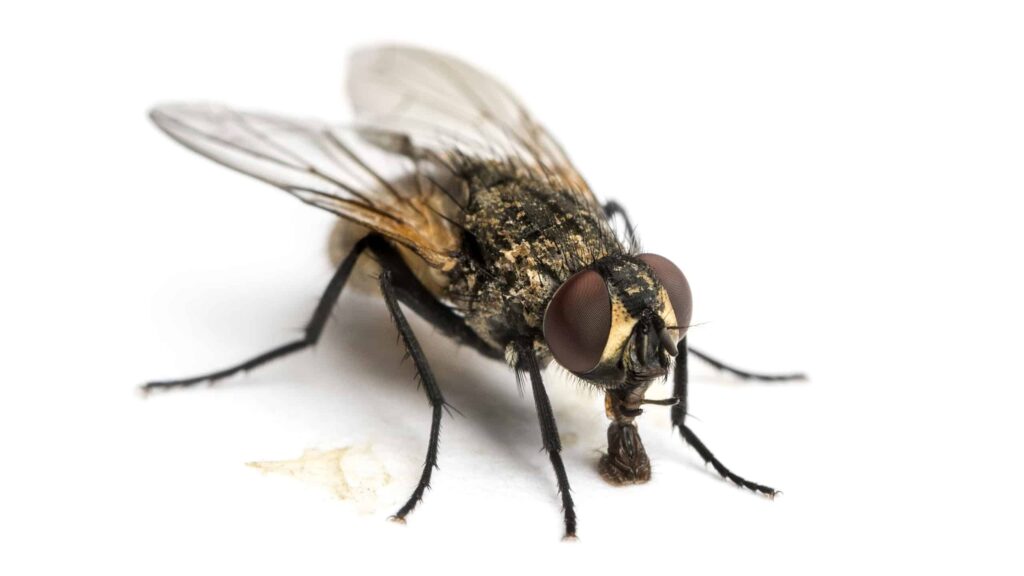
Poop doesn’t pose any serious threat to flies the way it does to humans.
©Eric Isselee/Shutterstock.com
10. Dog Poop Can Contain Parasites
Dogs can carry several gastrointestinal parasites. A large roundworm species, Toxocara canis, can be fatal and can also migrate to humans. Another species, Toxascaris leonina is more typically seen in older dogs. We can become infected if we put soil, sand, or plants that have been contaminated with dog poop in our mouths.
The hookworm species, Uncinaria stenocephala is found in the northern fringe of the United States, and less commonly elsewhere in the country. Another hookworm, Ancylostoma braziliense, is found occasionally from Florida to North Carolina and along the Gulf Coast of the United States. Humans can be infected if the larvae penetrate the skin. This usually happens when people sit or walk on contaminated ground with bare feet.
Dogs can also have whipworms (Trichuris vulpis) in their large intestine. They attach themselves firmly to the intestinal wall. The eggs pass out with the feces and infect other dogs. There are rare reports of human infections.
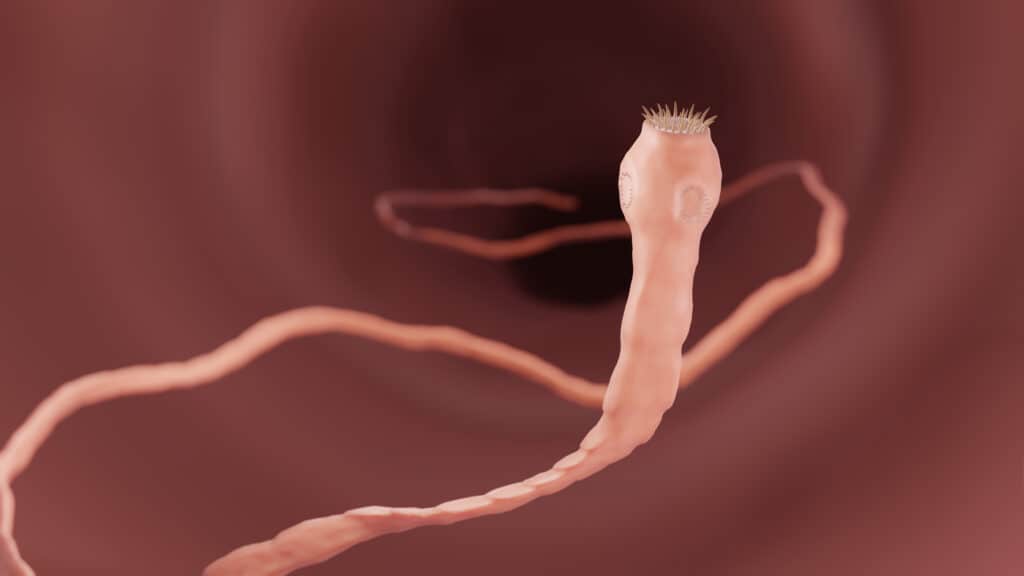
Tapeworms can live in the digestive tract and related ducts of dogs.
©iStock.com/Artur Plawgo
11. Your Dog May Roll In It
There’s no denying that most dogs are attracted to stinky things. This may be because they are trying to cover up the fragrance of the shampoo you have just used (dogs don’t share human opinions of fragrances) or because they simply love stinky smells. Some experts have suggested that they used it as a camouflage for hunting so that prey did not know that they were coming. Others think that it was the method wild dogs used to carry messages about what they had found back to the pack. It may also be a method of territory marking or simply a way to get your attention. You are hardly likely to ignore your pooch doing this just before they run inside and leap on your sofa, are you?
One of the most effective ways to control this behavior is to reduce opportunities. You can achieve this by making sure that there is no poop in your yard!
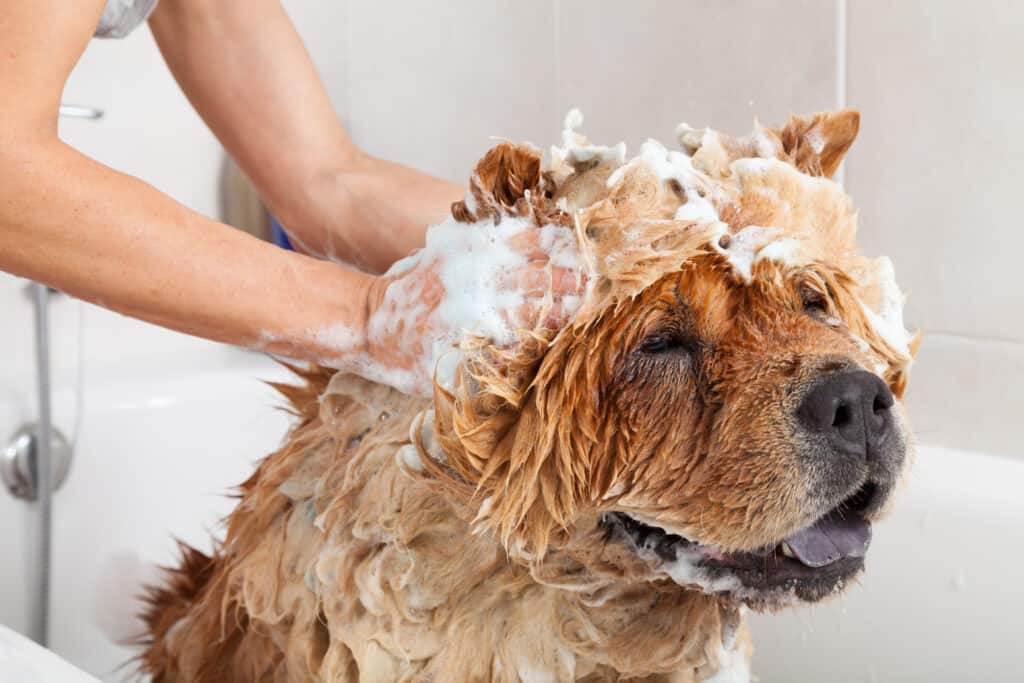
Dogs who roll in poop need a bath!
©iStock.com/fotoedu
12. It’s an Opportunity for a Health Check
You’d be surprised by how much you can tell about your dog’s health by looking at their poop. So, instead of just ignoring it, go and pick it up and have a quick look whilst you are doing it.
The color is important. Dog poop should be chocolate brown and any other color can indicate a problem. For example, red streaks could be blood, and black tar-like poops can indicate upper gastrointestinal tract bleeding. Also check the shape which should look like a small log, small rounded poops can indicate dehydration. If your dog has diarrhea or watery poops it can also indicate that they have an infection. Finally, if there is mucus in the pool it can indicate an inflammation of the colon.
By removing the dog waste regularly, you will also be able to tell when your dog last pooped. If your dog does not poop for several days it can be a sign of constipation or an intestinal blockage.
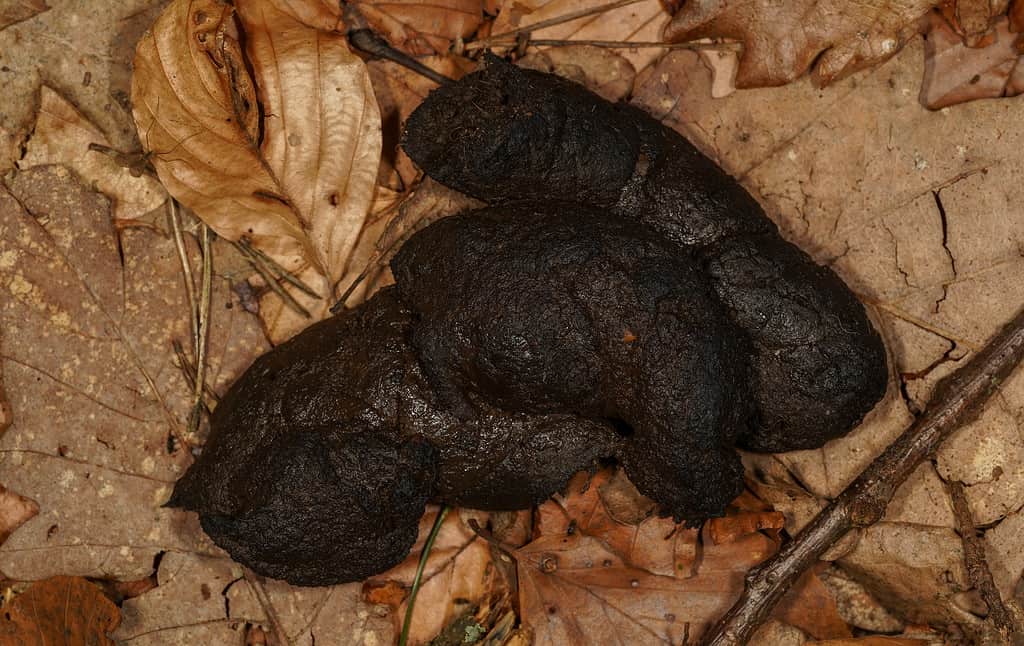
Dog poop should be chocolate brown.
©iStock.com/Amazing Nature Photography
| Number | Reason for picking up dog poop |
|---|---|
| 1 | Dog poop does not break down like manure |
| 2 | It pollutes the environment |
| 3 | Someone may tread in It |
| 4 | Dog poop contains harmful bacteria and viruses |
| 5 | Dog feces smells bad |
| 6 | Not picking up poop may be illegal |
| 7 | It can encourage vermin |
| 8 | Your dog may eat it |
| 9 | Dog poop encourages flies and mosquitoes |
| 10 | Dog poop can contain parasites |
| 11 | Your dog may roll in it |
| 12 | It’s an opportunity for a health check |
The photo featured at the top of this post is © iStock.com/MrcTeamStock
Ready to discover the top 10 cutest dog breeds in the entire world?
How about the fastest dogs, the largest dogs and those that are -- quite frankly -- just the kindest dogs on the planet? Each day, AZ Animals sends out lists just like this to our thousands of email subscribers. And the best part? It's FREE. Join today by entering your email below.
Thank you for reading! Have some feedback for us? Contact the AZ Animals editorial team.







